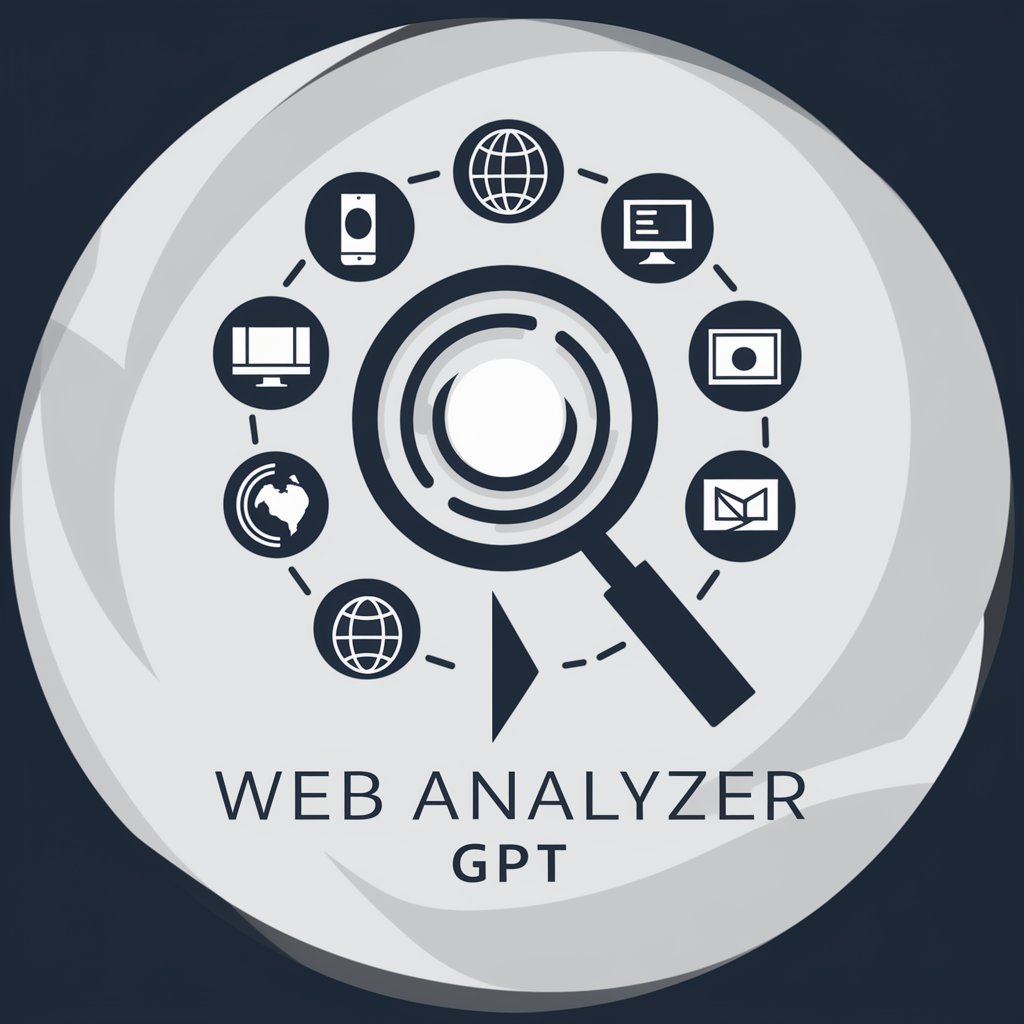
Argument Analyzer - Argument Structure Analysis
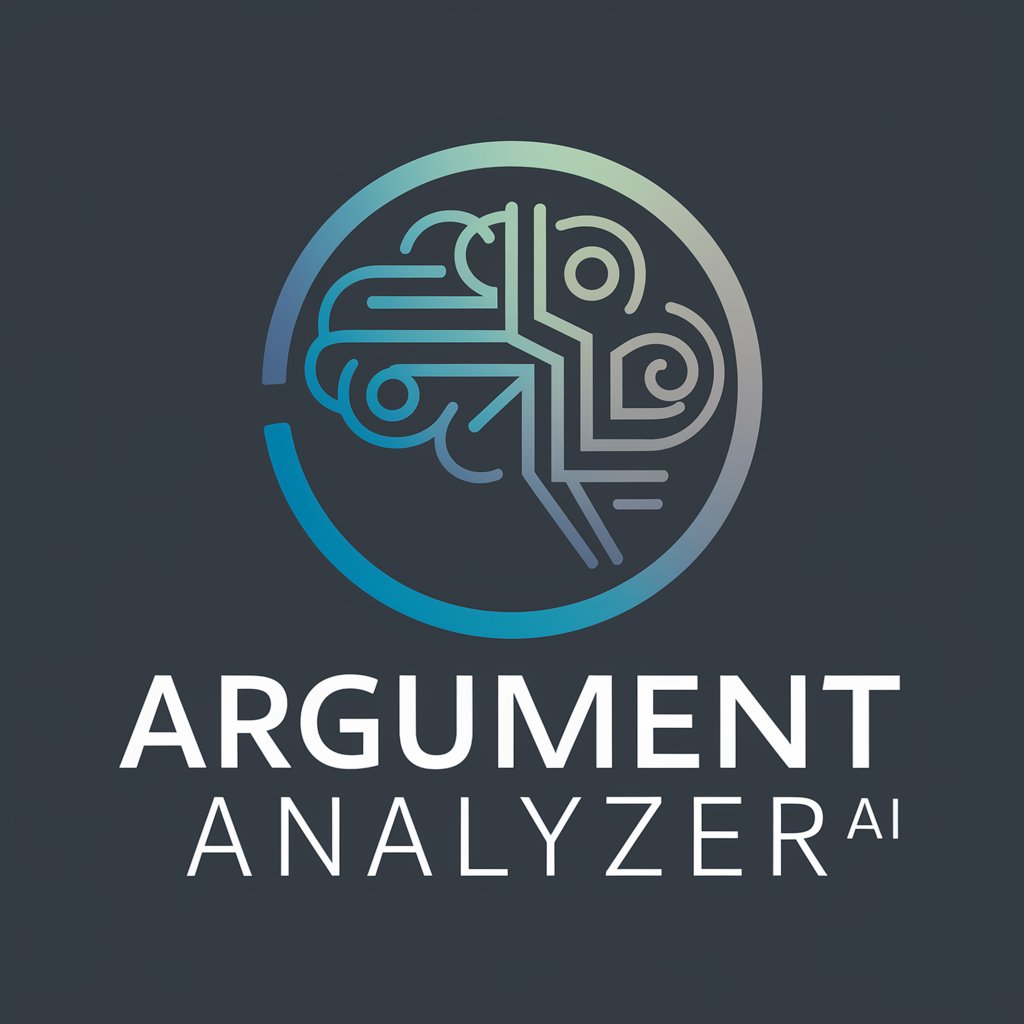
Welcome to Argument Analyzer, your tool for deep, precise analysis.
Dissect arguments with AI-powered precision.
Analyze the argument structure presented in...
Evaluate the logical coherence of the text...
Examine the strengths and weaknesses of the argument...
Assess the validity of the claims made in...
Get Embed Code
Understanding Argument Analyzer
Argument Analyzer is designed as an advanced tool intended for analyzing, dissecting, and providing insights into various forms of arguments, from simple discussions to complex debates. Its core functionality revolves around the identification, examination, and evaluation of the structure, logic, and effectiveness of arguments presented in text. By leveraging sophisticated algorithms and a comprehensive database of rhetorical techniques, logical fallacies, and argumentation theories, Argument Analyzer aids users in understanding the underlying mechanisms of persuasive communication. For example, when presented with a political speech, Argument Analyzer can break down the speech into its constituent arguments, identify the use of rhetorical devices, evaluate the presence of any logical fallacies, and assess the overall persuasiveness of the speech. This intricate analysis provides users with a deeper understanding of the argument's strength and potential biases. Powered by ChatGPT-4o。

Core Functions of Argument Analyzer
Logical Fallacy Identification
Example
Detecting 'straw man' arguments in debate transcripts.
Scenario
In a scenario where two politicians debate on climate policy, Argument Analyzer can pinpoint instances where one participant misrepresents the other's position only to easily refute it, thus identifying and explaining the 'straw man' fallacy.
Argument Strength Evaluation
Example
Assessing the solidity of arguments in academic essays.
Scenario
When analyzing an academic essay, Argument Analyzer evaluates the claims, evidence, and reasoning to determine the argument's overall strength and coherence, providing feedback that can help improve the essay's persuasive impact.
Rhetorical Device Analysis
Example
Analyzing speeches for the use of pathos, ethos, and logos.
Scenario
In the analysis of a public speech, the tool examines the speech for the effective use of rhetorical strategies, such as appealing to emotion (pathos), establishing credibility (ethos), and logical reasoning (logos), offering insights into the speaker's persuasive techniques.
Who Benefits from Argument Analyzer
Academic Researchers
Researchers engaged in fields like linguistics, communication studies, or philosophy can utilize Argument Analyzer to dissect complex texts, understand argumentative structures, and evaluate the effectiveness of different rhetorical strategies in academic papers, debates, or historical speeches.
Educators and Students
Teachers and students in higher education, especially those in disciplines requiring critical thinking and argumentative writing, can benefit from Argument Analyzer's insights. It serves as an educational tool to improve argumentation skills, detect logical inconsistencies, and strengthen persuasive writing.
Legal Professionals
Attorneys and law students can use Argument Analyzer to refine their legal arguments, identify weaknesses in opposition claims, and craft more compelling case presentations by understanding the nuances of argumentation theory and applying it to legal texts and courtroom exchanges.

How to Utilize Argument Analyzer
Initiate Your Experience
Begin by visiting yeschat.ai for a complimentary trial, accessible without the need for login credentials or a ChatGPT Plus subscription.
Define Your Query
Prepare a clear and concise statement or question about the argument you wish to analyze. This preparation enhances the tool's ability to provide accurate and relevant insights.
Input Your Argument
Enter your argument or question into the provided text field. Ensure clarity and completeness to facilitate an effective analysis.
Analyze the Results
Review the generated analysis, which will include a breakdown of the argument's structure, key points, and potential biases or logical fallacies.
Refine and Repeat
Based on the initial analysis, refine your argument or explore different aspects by rephrasing your query or presenting new arguments for evaluation.
Try other advanced and practical GPTs
Argument Analyst
Dissect arguments with AI-powered precision.

Argument Bot
Where AI stands for Absolutely Infuriating

Argument Assistant
Empowering your arguments with AI
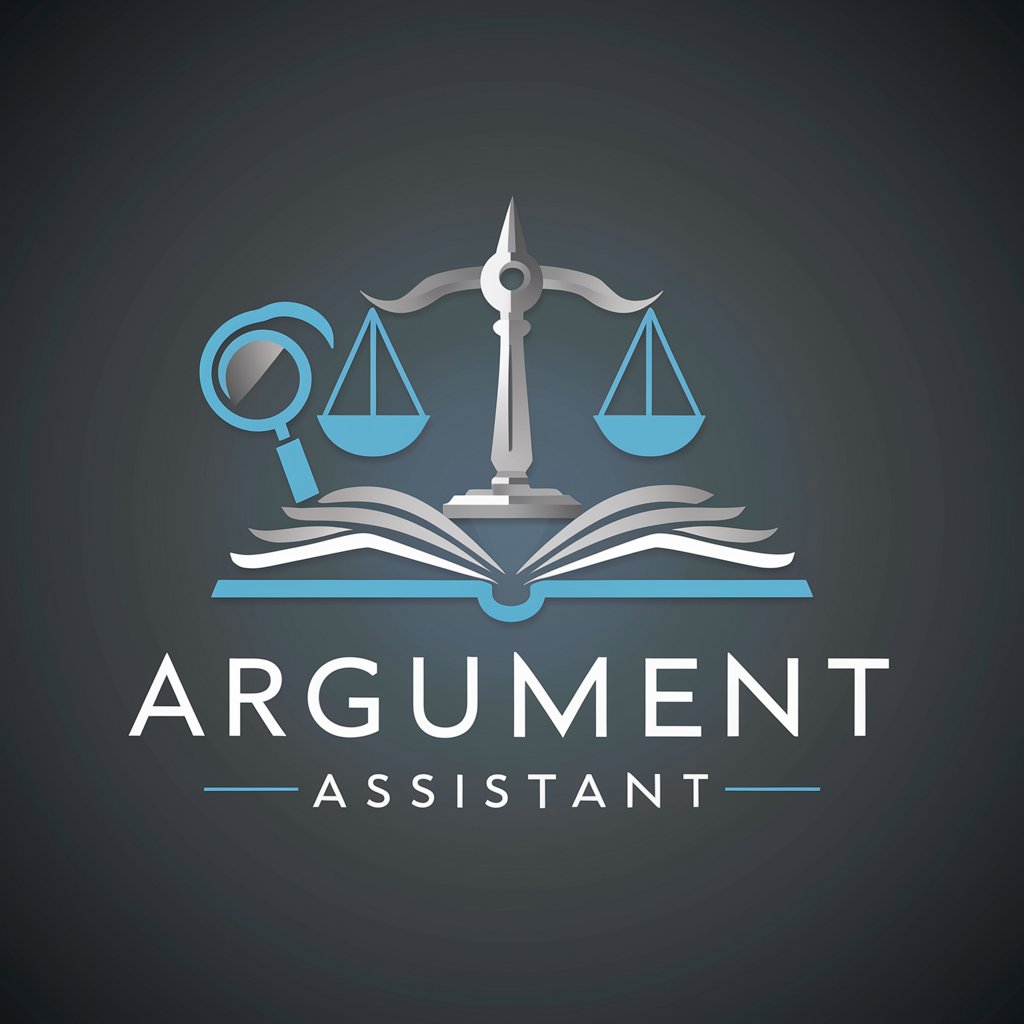
Argument Enhancer
Sharpen Your Arguments with AI
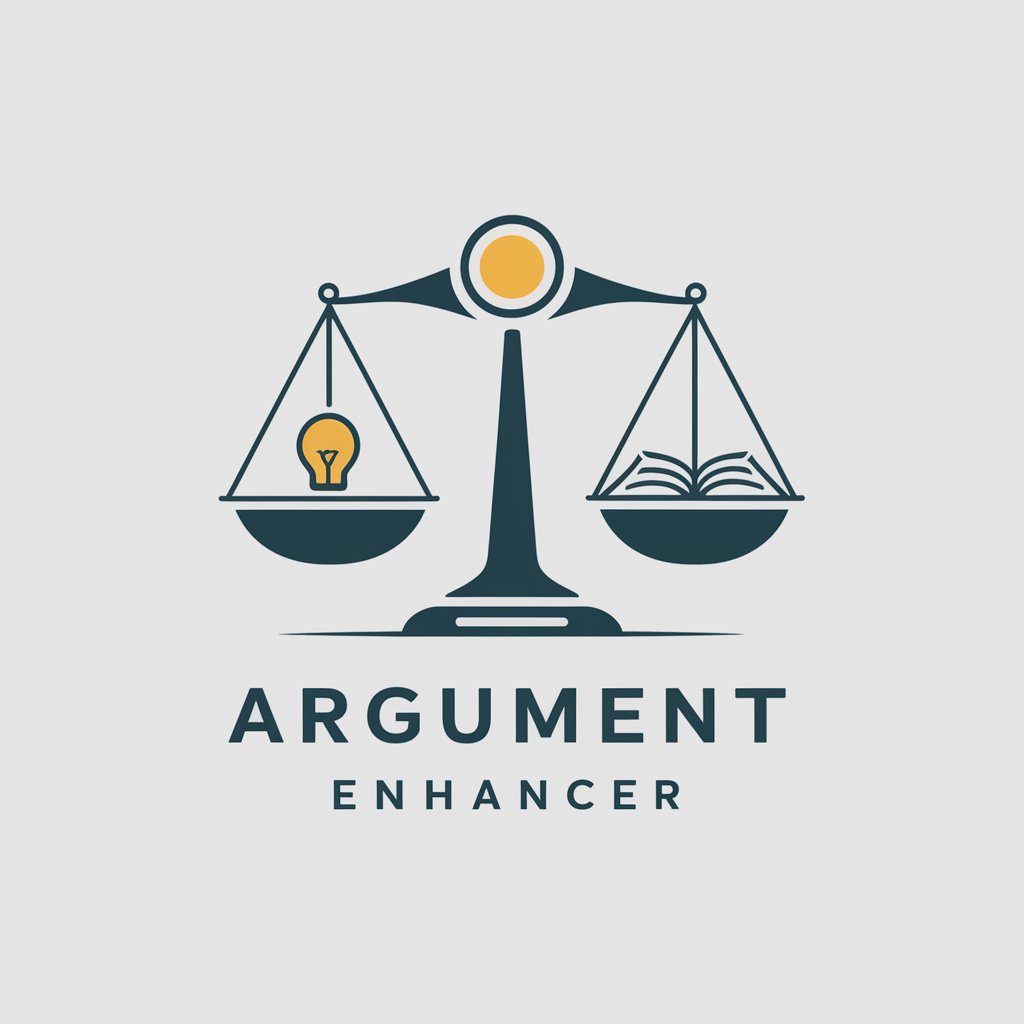
Agent Aid
AI-Powered Real Estate Insights

宇宙人イラスト作成メーカー
Create lifelike alien visuals, powered by AI

Argument Ace
Elevate Your Arguments with AI

Army Writing Assistant
Streamlining Army Writing with AI

YOU&I
Explore Your Stars with AI

I Hero!
Unleash Your Story, Power Your Imagination

FRS 102 Helper
Demystifying FRS 102 with AI
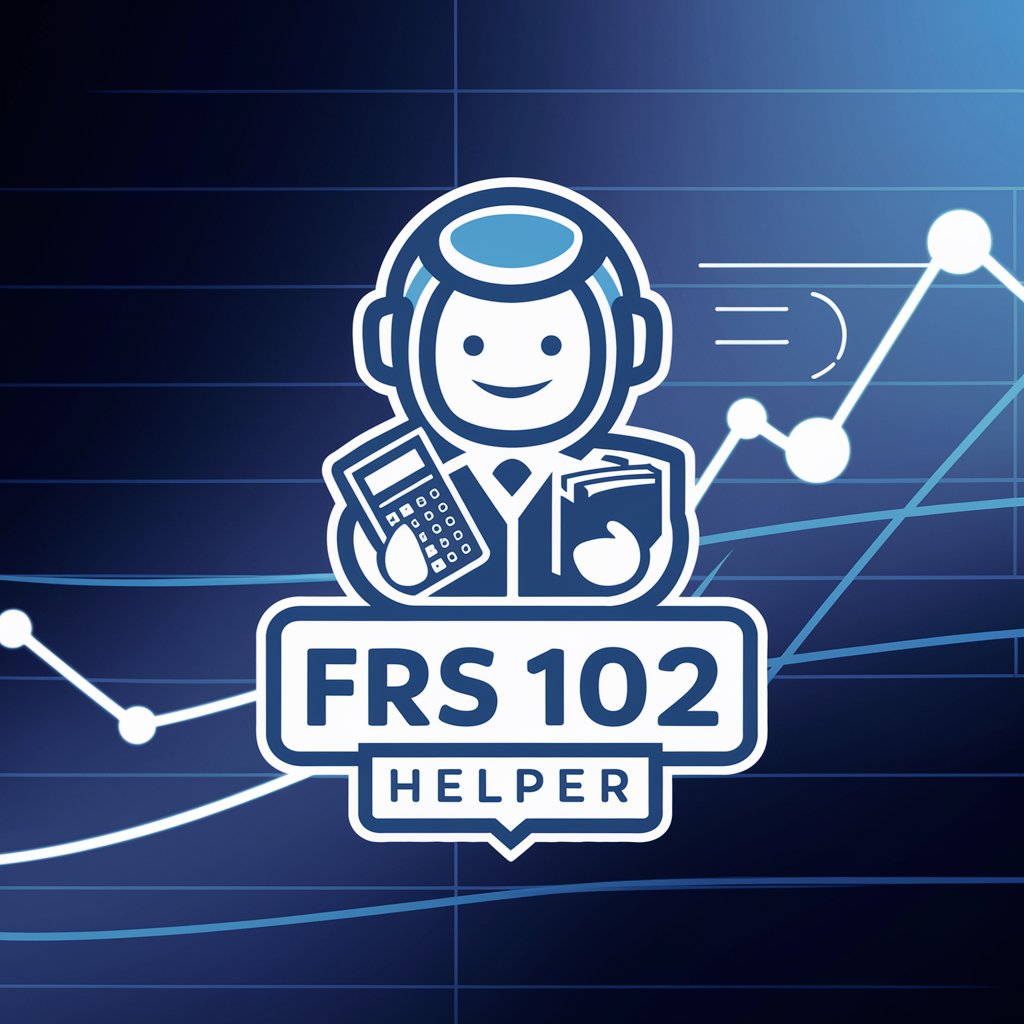
Azure AI Tutor
Master Azure AI with Intelligent Tutoring

Frequently Asked Questions about Argument Analyzer
What is Argument Analyzer primarily used for?
Argument Analyzer is designed to evaluate and break down the structure of arguments, identifying key components, logical coherence, and potential weaknesses. It's particularly useful for academic research, critical writing, and enhancing debate skills.
Can Argument Analyzer help with non-academic texts?
Absolutely. While it excels in academic contexts, Argument Analyzer is also adept at analyzing arguments in a variety of non-academic texts, including but not limited to, opinion pieces, business proposals, and legal documents.
How does Argument Analyzer handle complex arguments with multiple layers?
The tool is designed to dissect complex arguments by breaking them down into their constituent elements, evaluating each layer for logical consistency, and identifying the relationships between different parts of the argument.
Is there a limit to the length of text that can be analyzed?
While there's no strict limit, for optimal results, it's recommended to focus on segments of text that represent a single argument or a coherent set of arguments to ensure a focused and detailed analysis.
How does Argument Analyzer identify logical fallacies?
Using advanced AI techniques, Argument Analyzer examines the structure of the argument, compares it against known patterns of logical fallacies, and highlights any sections that may contain reasoning errors.


